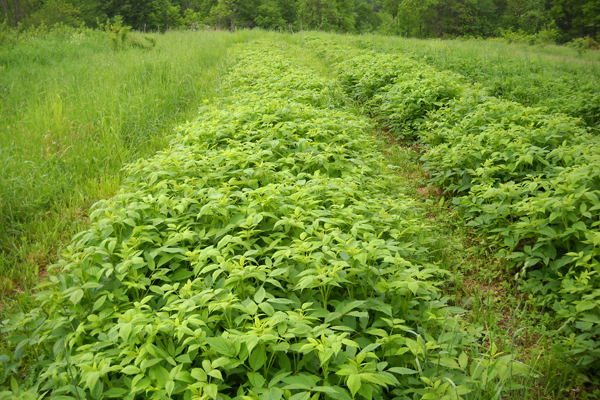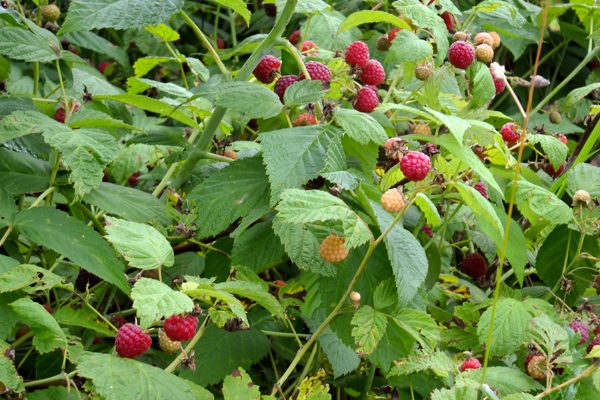-

Erin Donahue -

Christina Barkanic -

Brittany Trott -

Emily Wiley -

Jessica Reilley -

Chris Raines -

Will Nichols -

Emily Reddy -

Michele Marchetti -

Michele Frank -

James Gherardi -

Kit Henshaw -

Christina and Erin -

Kim Tait -

Erin McKinney -

Steve Spanelli -

Sam Komlenic -

Katherine Taylor Grofic -

James Eisenstein -

Jamie Oberdick -

Anna Lombardo -

LacCreta Holland -

Tony Ricci -

Local Food Journey -

Laura Young -

Kristin Camplese -

Harrison's Fresh + Local -

Danielle Matalonis -

Kristine A. -

Linda Weaver -

Naomi Elle Schwartz -

Dana Stuchul -

Cara McShane -

Brittany Smith -

Jessica Illuzzi - Frosty
-

Jessica Paholsky -

James Sechrengost -

Brad Yeckley -

Maya Althouse -

Jordan Reabold -

Kim Chase -

Maria Bryant - Alexandrea Scott
Unpaid Field Hand: Name this Crop
Posted by James Eisenstein on 07/01, 2011 at 08:59 AM

Name this Crop. Photo Credit James Eisenstein.
If you are still reeling from failing to identify the asparagus plants in my first blog post, redemption can be yours. The very immature crop pictured above will produce (with some luck) one of the most sought after food items. What surprises me is that despite their popularity (even though they are pricey), they are not difficult to grow. Anyone reading this who has access to a mostly sunny patch can do it. In addition to being delicious, they contain significant amounts of polyphone antioxidants said to fight cancer and other diseases. One source indicates that one cup provides 69% of the daily requirement for vitamin C.
I first started growing this plant in 1969 when my next-door neighbor shared some of his. I still have some plants from that original gift, but most are now of a different variety. The picture above shows the plants that I convinced my son, John, to plant at Jade Family Farm. We will harvest from this field in late summer.
My backyard varieties, though, bear in late June on plants that came up last spring. If you haven’t guessed already (hints: they are perennial, fit into cups, cost a lot, and are delectable), this picture that I took on June 25th is a dead giveaway.

Raspberry Field. Photo Credit James Eisenstein.
Raspberries! The canes with berries on them are called floricanes. They emerged last spring, bore a fall crop, overwintered, and are producing again now. The taller, greener canes without any berries are called a primocane. They will bear this fall, overwinter, and produce a second crop next June.
Some varieties perform better if fall-bearing primocanes are cut down in late winter. This sacrifices the June crop, but results in a bigger fall crop. But – you guessed it – there is a catch. Raspberries require a lot of water when the berries are forming, which make them susceptible to August droughts. We recently installed an irrigation pump in the old farm spring house, so we hope a big harvest will be ours (and yours, if you come to the Boalsburg or North Atherton Markets).
My backyard crop has already been unusually productive this year. We picked over a-gallon-and-a-half in one day from my two 20-foot long patches. I like to eat them in all forms, including piled on top of yogurt (with a few black raspberries) and mixed with a little bit of granola. Drool!
Did you guess these were raspberries? What’s your favorite way to eat them?
![]() Author: James Eisenstein
Author: James Eisenstein
Bio: Unpaid Field Hand at Jade Family Farm | Former Penn State Professor
- Our Local Food Journey comes to an end
- Winter isn’t a quiet time at the farm
- Get the taste of garden season right now by growing herbs indoors
- All you need to know about PASA’s Farming for the Future conference









Comments
Posted by .(JavaScript must be enabled to view this email address)
07/02 at 06:38 AM
St. Marys, PA
We have only a small spot dedicated to raspberries, but we too have an unusual amount developing! It must be a berry year… do berries have cycles or does it all depend on weather?
Page 1 of 1 pages